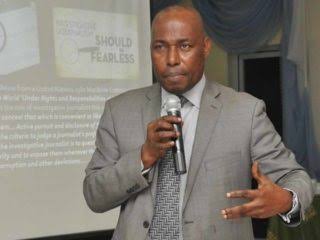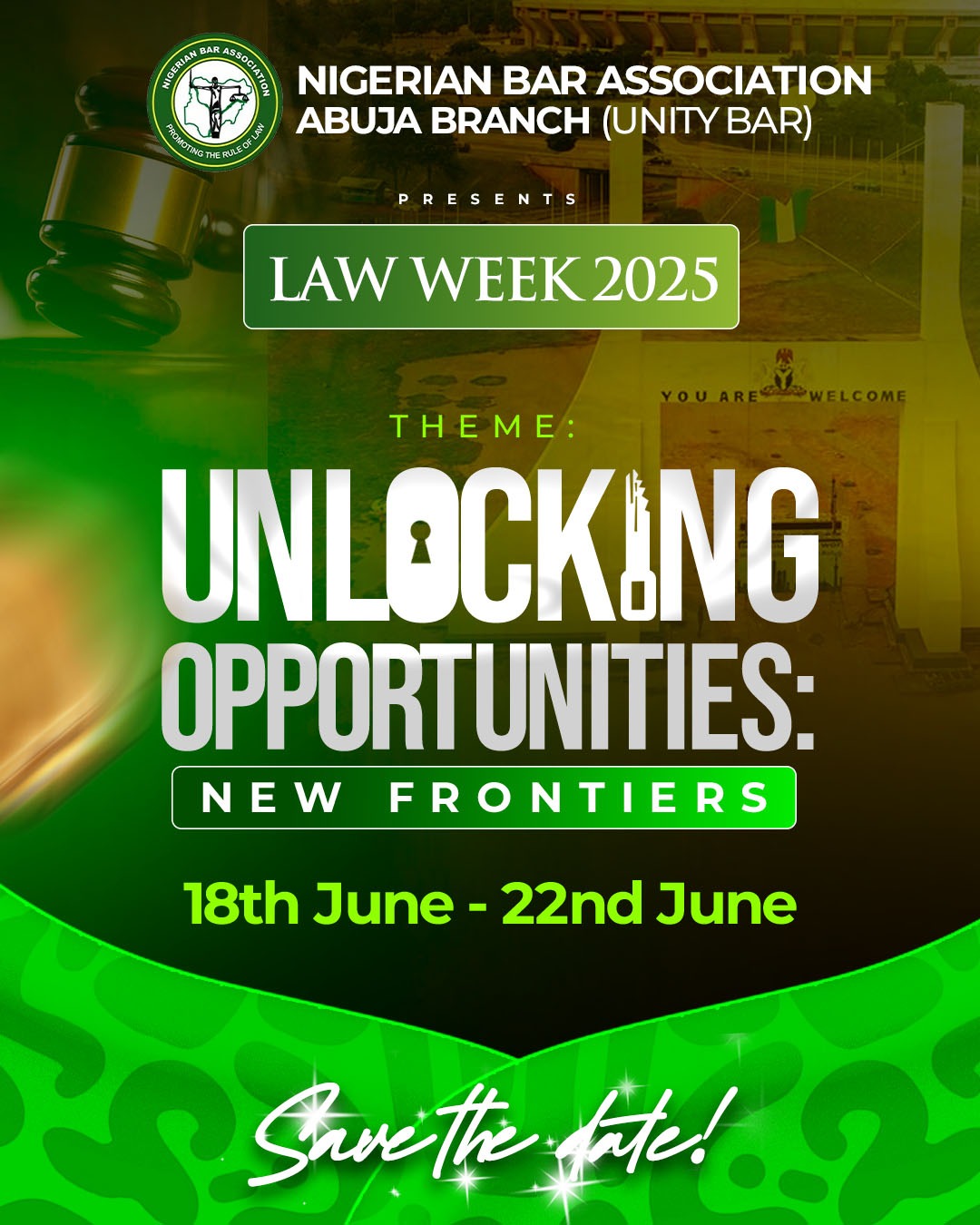Inside Stuff With MARTINS OLOJA
It is indeed delightful to note that the Visitor to the University of Lagos, President Mohammed Buhari has responded timely to calls by different stakeholders for resolution of the crisis that has threatened to dent the brand equity of the great university.
Specifically, bowing to strong calls from ASUU, among others, the federal government at the weekend directed the Pro-Chancellor and Chairman of Council of the University of Lagos, Wale Babalakin, and Vice-Chancellor, Prof. Oluwatoyin Ogundipe to recuse themselves from official duties, pending the outcome of the Special Visitation Panel set up by president. The decision at was contained in a press statement signed by Director press, Federal Ministry of Education, Ben Goong. Babalakin’s Governing Council had, on August 12, sacked Professor Ogundipe as Vice-Chancellor over alleged financial recklessness and misconduct. Ogundipe, however, rejected the Council’s decision, saying the University’s due process had not been followed. The senate of the University, the school’s alumni, and ASUU also issued statements condemning Babalakin’s Council’s action, which they say did not follow due process. Babalakin in several media appearances, insisted he followed due process in removing Professor Ogundipe as Vice Chancellor. The university’s Registrar and Secretary to the Council had also signed some documents in media advertisement, detailing some contract scandals by the management. The University of Lagos, Visitation Panel members are: Professor Tukur Sa’ad – Chairman, Barrister Victor Onuoha, Professor Ikenna Oyindo, Professor Ekanem Braide, Professor Adamu K. Usman, Chief Jimoh Bankole, and Barrister Grace Ekanem Secretary – are to conclude work within two weeks.
Let us not get it twisted, the brand reputation I have been talking about is a serious critical factor in business, bureaucracy, politics, diplomacy and personal life. We need to build and preserve our reputation, reputation of our governance institutions, our organisations (secular and religious) if we want to be taken seriously. Brand reputation refers to how a particular brand (whether for an individual or a company or organization, is viewed by others. A favourable brand reputation means consumers trust your company, your service and feel good about purchasing your goods and services.
So, as I was saying, brand reputation, we hardly recognise here, is critical to growing a business. A positive brand equity builds loyalty and increases customer confidence in your brand and product, ultimately driving sales and bottom-line growth. This critical success factor is more important than anything else in marketing communication. If well handled, it positions you as a leader in your space.
This is not a module or a master class on brand reputation management. I just want us to recognise why I refrained from blaming anyone here last week for the crisis at the University of Lagos set up in 1962 as a national university. I know the importance of preserving and guarding reputation. Preserving the reputation of the university means value to all the teachers and old students of the university wherever they go. Let me repeat a story Professor Akin Oyebode used to illustrate the reputation of the University of Lagos at a Brand Management colloquium organised by the University of Lagos, Mass Communication Department Alumni Association (UMCAA) in March 2019.
Specifically, the proactive University of Lagos Mass Communication Alumni Association (UMCAA) had on Thursday March 21 organised its 2019 “Distinguished Lecture Series” titled, ‘Brand Nigeria: Ignite’. The keynote speaker, Akin Oyebode, a retired Law Professor of the University of Lagos who modified the title to read, ‘Re-branding Nigeria: A Quixotic Task?’ spoke to the theme, in any case. The professor of international law and jurisprudence said the first time he appreciated the essence of brand reputation was the time the authorities in Abuja in 2012 proposed to rename the iconic University of Lagos after Moshood Abiola as Moshood Abiola University – from UNILAG to MAU. He disclosed to the audience that a Nigerian doctoral student had in Oxford University, U.K cornered him then and told him after participating in a conference at the University (Oxford) that if they succeeded in changing the University of Lagos UNILAG to MAU they would have ruined his own brand reputation from the University of Lagos where he obtained his first class degree in Political Science, which had earned him a direct entry for a doctorate degree in Oxford. Professor Oyebode said the student then asked him to tell the authorities of the University of Lagos then to reject the blighter and brand destroyer called MAU. The rest is history as the President Jonathan administration dropped the idea when the University administration and the alumni power won the day to preserve the brand reputation.
I was part of a three-man discussion panel of the Oyebode’s keynote at the event chaired by Sir Steve Bamidele Omojafor at the main hall of the University. The two other discussants were Oluyinka Esan, an UMCAA member, former lecturer Mass Communication Department, Unilag and now a professor, Media Studies at the University College, Winchester, U.K and Odion Aleobua, also UMCAA member and a Marketing Communications expert, founder and CEO, MODION, formerly of OANDO and Forte Oil.
Professor Oyebode’s brief encounter on brand management of University of Lagos at the Oxford University, another global brand, underscores the fact that most times, our leaders and managers lack understanding that our actions and utterances can destroy our brand reputation and years later we spend billions of our meager resources to organise damage control, which most times, doesn’t restore much to the factory setting (of reputation). This was the point I tried to make last week while appealing the gladiators in Unilag to avoid actions that could destroy the reputation of the university already noted by the authorities at the Oxford and Cambridge. There are still several universities in Nigeria, which enjoy such brand reputation even in developed countries, despite all odds. Brand reputation is the pulling power and the only reason most of our people struggle to send their children to certain universities in Europe and North America. Brand equity is the reason some people decide to subsume their universities under a few months certificate programmes in Harvard, Oxford, Cambridge, MIT, Yale in their curriculum vitae and bio data. And here is the thing, we should invest robustly in infrastructure and superstructure that will enhance brand reputation of our institutions, agencies, our states and our country.
As Professor Oyebode noted at the colloquium, the many well-equipped libraries at the Harvard Law School, in Boston alone can be intimidating as a brand builder. His seminal presentation at that UMCAA colloquium underscores the fact that as a nation-state, Nigeria could use ‘considerable re-configuration, re-ordering or rebranding, especially on account of the country’s bad press internationally and gruesome image as the habitat of the world’s ugly Nigerian’.
So, if we must re-brand Nigeria and institutions therein, we must align with the understanding that there must be a conscious efforts at investing in rebranding. To develop a university or our agency or product like consumer brands, we must invest heavily in research and development (R&D). As noted at that UMCAA seminar, Apple Corporation was estimated to have spent $14.7 billion on R&D in 2018 and almost 50% of Nigeria’s 2018 Annual Budget of $29.8 billion.
As I had noted here on March 24, for me, Nigeria is still a hard sell partly because its leaders de-market the country with pronouncements on corruption and insurgency. So the only brand equity we have stems from corruption and insecurity, as Boko Haram too has a brand equity – associated with Nigeria. The president himself goes to the United Nations to tell the world about the brand – corruption. He does not tell us how to fix critical infrastructure such as the national shame called Apapa Ports – located in the economic capital of West Africa, Lagos, ‘centre of mediocrity’ renamed ‘centre of excellence’. But is there a more excellent place than Lagos in Nigeria? That is why we need to get all of us to sit down to develop a strategy to ignite the Re-branding Nigeria, the brand the black people of the world have been waiting for.
So, the lessons from the University of Lagos current crisis should be noted by the authorities of the University and in Abuja where they always influence membership of Governing Councils and where they help all sorts of characters to be Vice Chancellors. The first lesson for Abuja is that the University of Lagos is not the only public university that intrigues, corruption, vested interests and even cabals have threatened to ruin.
Despite the paucity of funds allocated to the public universities, things could be better with proper and prudent management. The fact that most public universities including those offering computer science and engineering cannot migrate to e-learning platforms at this moment should be probed. It may not be due to funding problems alone. It is curious to note that most tertiary institution managers should visit Nigeria’s first College of Education, Adeyemi College of Education, Ondo where an immediate past Provost, Professor Olukoya Ogen caused even Fibre Optic cable to be laid inside the campus for the purpose of building digital facilities the College now uses for e-procurement, e-learning and e-election. If a degree awarding College of Education can do that in Ondo, why not public universities, according to the proportion of their budget?
So, the federal and state governments should not always dismiss complaints and protests from ASUU members. They are knowledgeable and critical stakeholders, no matter how cantankerous we perceive them to be. They as teachers and public intellectuals, deserve more respect. They know their associates who are corrupt and indolent. They know the university administrations that are corrupt and wasteful.
Meanwhile, the Senate of the University of Lagos should stand up for recognition for their resilience in this crisis. The senate was resourceful: They sent a print copy of their resolution on the crisis to the Visitor/President, the Minister of Education and the National Universities Commission in Abuja. The University of Lagos Senate deserves a garland of honour while the sacked Acting Vice Chancellor, Prof. T. Soyombo who wanted to benefit from some architecture he found in the ruins, deserves a censure. The deliverable from all this rigmarole here is that the president and governors should pay more attention to quality of education at all levels in Nigeria. They should be interested in the quality of corporate governance in tertiary institutions. If Nigerian scholars can’t be relied upon find solution to our problems, we can’t make progress. They should recognise tertiary institutions as solution and innovation centres.
newspotng




